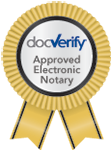Estate and Gift Tax Returns
The Lasher firm now regularly prepares estate and gift tax returns for our clients.
Estate Tax Returns
When a death occurs, an estate tax is imposed on the transfer of a “taxable estate” of the deceased person, whether such property is transferred via a Will, a Revocable Trust, state intestacy laws, life insurance contracts, beneficiary designation forms, or by other non-probate means such as joint tenancy with right of survivorship or transfer on death documents.
Federal and state estate tax may be due on an estate if the gross estate is greater than the federal or state thresholds. The federal estate tax threshold amount for year 2023 is $12.92 million per person. The State of Washington estate tax threshold amount for year 2023 is $2,193,000 per person. For assets passing to a child or other family member the federal exemption currently allows married couples to pass $25.84 million in assets to their heirs free from federal estate taxes.
At both the federal and state level, there is an unlimited marital deduction to surviving spouses who inherit property outright from a decedent spouse or in special marital deduction trusts. Therefore, any assets passing to the surviving spouse will usually pass estate tax free. For married couples, the surviving spouse can make a “portability” election, under which the deceased spouse’s unused federal estate tax exemption amount passes to the surviving spouse by filing a Federal Form 706 “United States Estate (and Generation-Skipping Transfer) Tax Return.”
At the Washington State level there is no “portability election,” and the $2,193,000 must be allocated to a Washington Exemption trust in order to preserve the exemption for the surviving spouse’s estate; otherwise the Washington exemption is lost. Use of a Washington Exemption trust will effectively allow for $4,386,000 to pass to heirs free from Washington state estate tax. Please note that a Washington Estate Tax Return must be filed if the surviving spouse’s estate exceeds $2,193,000, even if a federal estate tax return filing is not necessary.
Gift Tax Returns
If you make: (i) a gift of property other than cash/publicly traded securities; or (ii) a gift of more than $17,000 in cash/publicly traded securities in 2023, you must file a gift tax return. The current “lifetime exemption amount” for federal gift tax is $12.92 million which an individual can give over the course of their life and not incur any gift tax liability. However, the federal lifetime exemption amount is reduced by any taxable gifts made.
Taxable gifts are subject to gift tax on a graduated scale, with the gift tax typically paid by the donor, not the recipient of the gift. To utilize the federal gift tax exemption you must file a gift tax return, known as the Federal Form 709 “United States Gift (and Generation-Skipping Transfer) Tax Return.” To avoid future challenges of the gift by the IRS and start the statute of limitations, the gift tax return must be “adequately disclosed” as required by the IRS. Adequate disclosure standards require very specific information that must be included with the gift tax return information that our team at Lasher can help facilitate. In Washington, there is no tax on gifts made and no gift tax filings, which can create opportunities for Washington residents to reduce estate taxes.
 We now offer docverify, Approved Electronic Notary Services.
We now offer docverify, Approved Electronic Notary Services.
Team Highlights
- Multiple team members have advanced degrees in tax, business administration or CPA certification
- Includes attorneys listed as “Top Lawyers” by Seattle Magazine
- Includes members of Seattle Met magazine’s Top 50 Women Lawyers in Washington
- Consistently recognized by the legal community as Super Lawyers and Rising Stars
- Includes members named as “Best Lawyer” by The Best Lawyers in America and a “Five Star Professional in Estate Planning” by Seattle Magazine
- Includes attorneys consistently awarded Martindale-Hubbell’s highest rating, AV Preeminent
Estate and Gift Tax Returns Attorneys
-
 Denver Gant
Principal
View Profile
Denver Gant
Principal
View Profile
-
 Andrew R. Goodrich
Principal
View Profile
Andrew R. Goodrich
Principal
View Profile
-
 Kelly Rutledge
Attorney
View Profile
Kelly Rutledge
Attorney
View Profile
-
 George S. Holzapfel
Principal
View Profile
George S. Holzapfel
Principal
View Profile
-
 Darin T. Jensen
Principal
View Profile
Darin T. Jensen
Principal
View Profile
-
 Konrad A. Miernowski
Principal
View Profile
Konrad A. Miernowski
Principal
View Profile
-
 Amanda Whitely
Attorney
View Profile
Amanda Whitely
Attorney
View Profile







